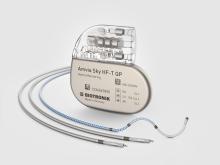How Love Benefits Your Heart Health
Exploring the Science Behind Love's Cardiovascular Benefits

Loving and being loved is obviously important for our emotional well-being – but plenty of research also finds clear links between love and better heart health. For Valentine’s Day, we took a closer look at the facts that research presents. What does the data reveal about the connection between love, social connections to others and our heart health? Research suggests that marriage, romance – even the occasional hug here and there can have significant cardiovascular benefits. What experts know as broken heart syndrome shows the opposite effect: People who undergo an extremely stressful physical or emotional event, such as the death of a loved one for example, can develop a disorder that affects the heart muscle, also known as Takotsubo cardiomyopathy, or broken heart syndrome.
For Better or For Worse
Many studies looking into marital status and heart health find better overall cardiovascular health and longer lifespans among married couples compared to the unmarried, regardless of whether they are single men or women. Other research supports these findings, showing that married men and women have a longer life expectancy than their unmarried counterparts, providing additional evidence for the protective effect of marriage.
In general, married people are about 52 percent less likely to die within four years of a cardiovascular event than unmarried individuals. But do you need to put a ring on it before you can look forward to the cardiovascular benefits?
There’s also quite of bit of research saying that no – reaping the benefits love can have for your heart health need not require a wedding band.
The Importance of Touch
One reason seems to come down to the effect physical touch can have on our blood pressure.
One study from the State University of New York at Oswego found that people’s blood pressure tends to go down when they’re with their significant other – pointing to how a partner’s presence can have a calming effect.
Another study even found that writing your partner a message – such as a love letter or Valentine’s card – had a statistically significant impact on lowering cholesterol.
Several other studies have explored the effect of physical touch. While partnered people may understandably get the most out of physical touch, it’s not just them who benefit.
Hugs, massages, and other forms of touch can all help reduce the cortisol stress hormone and release the feel-good oxytocin hormone, thereby reducing both blood pressure and heart rate. Our furry friends can even help here too, as the effect of petting and bonding with your pet can have similar calming effects. Research even shows that dog owners tend to have lower blood pressure than non-dog owners. Part of that is due to needing to walk the dog and thus getting more exercise, while part of it is due to your pet’s calming presence.
Many researchers ultimately think that the key variable is having someone to talk to about life’s problems – or someone you know you can count on if something happens. While married people often have that person at home, even those who are single – but have strong social connections and family support systems – tend to have better heart health than those who don’t.
A 2010 meta-analysis of 300,000 people across almost 150 studies even found that those who had strong social relationships were 50 percent more likely to be alive at the time the study ended.
The Importance of Good Influence
The other big reason strong relationships – whether romantic, marital, or otherwise – seem to have a positive impact on heart health comes down to encouraging each other’s good habits.
Smokers were 11 times more likely to quit if their partner also quit at the same time. Those who wanted to exercise more were five times more likely to be successful if their partner did so too, and three times more likely to lose weight – according to one study which looked at nearly 4,000 people.
Ultimately, a significant body of evidence tells us that human connection is something our heart will thank us for – both emotionally and physically. Our significant others can literally help us live longer just through the reassurance of their presence. But even those without one can invest in their heart health not just through better exercise and diet – but by surrounding themselves with supportive people in their lives.
More Articles
-
Image
 Blog
Blog25 Years of BIOTRONIK Home Monitoring: The Future of Cardiac Care Began in 2000
What if your cardiologist could spot a problem before you feel it? In 2000, BIOTRONIK made that vision real. With the launch of BIOTRONIK Home Monitoring®, the world’s first telemedicine system for remote follow-up of cardiac implant patients, we helped change how physicians care for people.
-
Image
 Blog
BlogBIOTRONIK’s Longstanding Cooperation with Die ARCHE: A Partnership for Children
-
Image
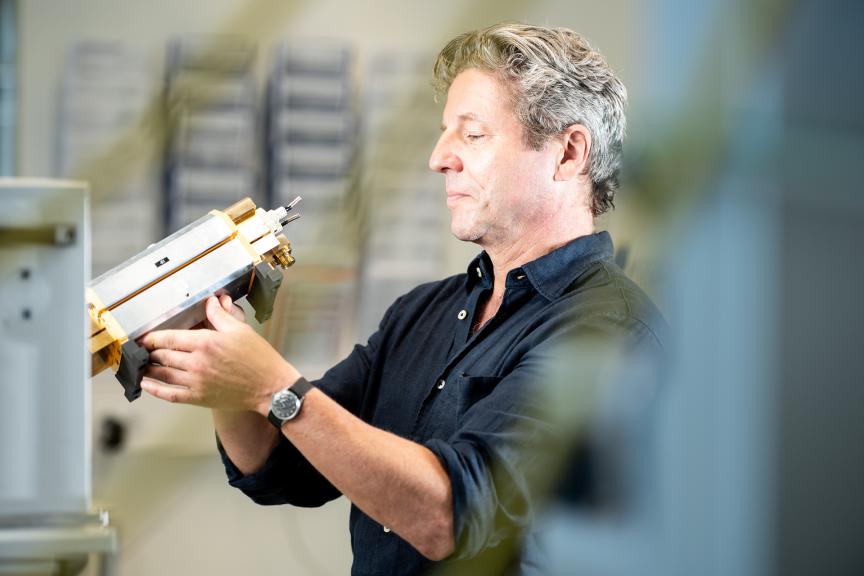
Heart Monitoring for Irregular Heartbeat: “I Can Now Do Sports Again Without Any Worries.”
A BIOTRONIK employee shares his experience as a patient with an implantable cardiac monitor.
-
Image
 Blog
BlogShaping Health Behaviors in Patients with Coronary Heart Disease
Optimizing Patient Experience With eHealth Solutions
-
ImageBlog
Improving Cardiovascular Health This International Women’s Day
-
Image
 Blog
BlogBIOTRONIK Employees Donate Over 14,000 Euros to the Arche Berlin-Hellersdorf
A Donation Ceremony Took Place at the Woermannkehre, on January 18, 2024
-
Image
 Blog
BlogGold Standard for Two Decades: Why the Use of GoldTip is Still Unbeaten in Certain Ablation Procedures
In the midst of celebrating 60 years of service in partnership with the healthcare community, BIOTRONIK’s Electrophysiology business marked another important milestone of its own in 2023 – its 20 th anniversary.
-
Image
 Blog
Blog60 Years of Saving Lives – How the BIOTRONIK Mission Continues
2023 was a landmark year for BIOTRONIK – not simply in name or number – but in action. The company’s 60 th year of operations was a busy one for lifesaving innovations like the Amvia pacemaker and CRT-P family and Oscar catheter, to laying the groundwork for helping a whole new community of patients with the Prospera TM spinal cord stimulation system, a BIOTRONIK first.
-
Image
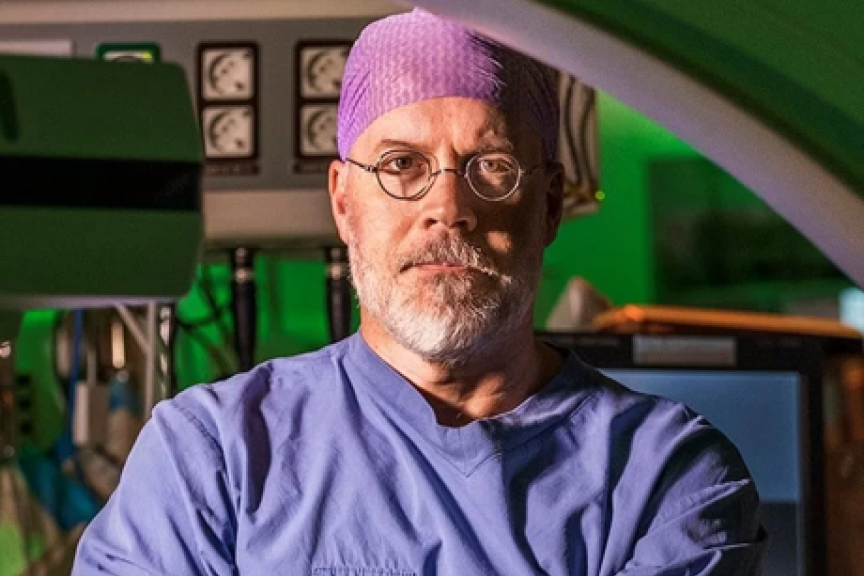 Blog
BlogVascular Revolution Spurs Overdue Update to Radiation Guidelines
Prof. Anders Wanhainen Highlights New ESVS Recommendations, Advising on Suspended Personal Radiation Protection Systems for the First Time
-
Image
 Blog
Blog60 Years of Saving Lives – How the BIOTRONIK Mission Spread Globally
What began with one lifesaving mission between two students in early 1960s Berlin now spans the globe: BIOTRONIK is active in more than 100 countries.
-
Image
 Blog
BlogUnveiling Hidden Atrial Fibrillation: Implications for Stroke Prevention in ICD Patients
New Research Confirms Effective Tools to Better Protect Patients with High Stroke Risk
-
Image
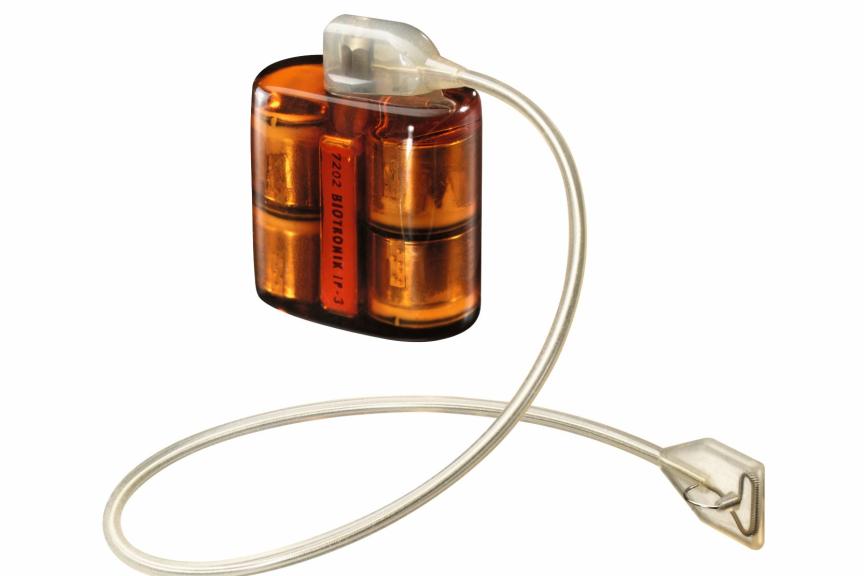 Blog
Blog60 Years of Saving Lives – How the BIOTRONIK Mission Began
This year is a special year for BIOTRONIK, one in which we mark sixty years of service in the healthcare community.
-
Image
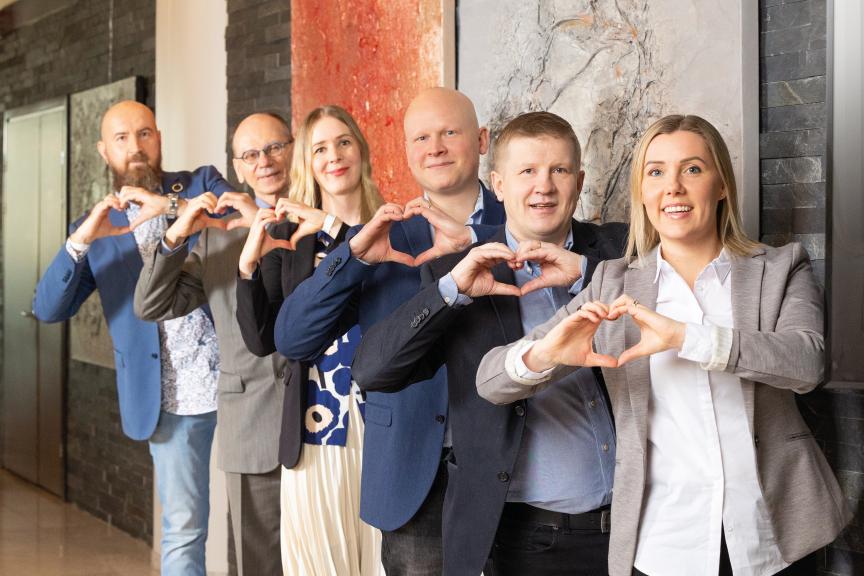 Blog
BlogBeyond the Workplace: BIOTRONIK's Commitment to Saving Lives
How One Colleague’s Act Inspires a Culture of Preparedness at BIOTRONIK
-
Image
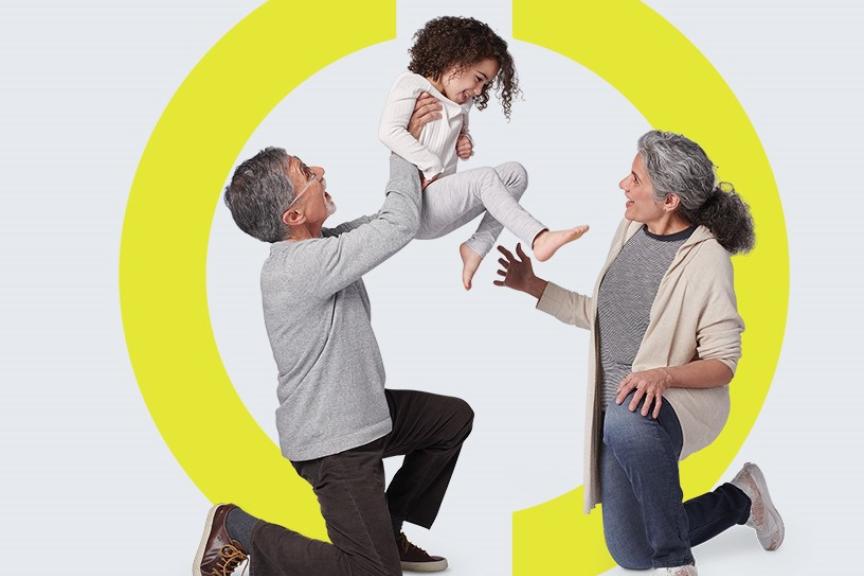 Blog
BlogHow Spinal Cord Stimulation Can Help Patients with Chronic Pain
A global company that has been making devices for 60 years and has vast experience helping patients with heart and blood vessel diseases, BIOTRONIK has expanded to the chronic pain space with BIOTRONIK Neuro.
-
Image
 Blog
BlogFive Cardiology Podcasts to Get Into
With being able to listen in while getting something else done – such as running, commuting or cooking – podcasts offer up great ways for us to keep up with what’s going on in every field imaginable – and cardiology is no exception.
-
Image
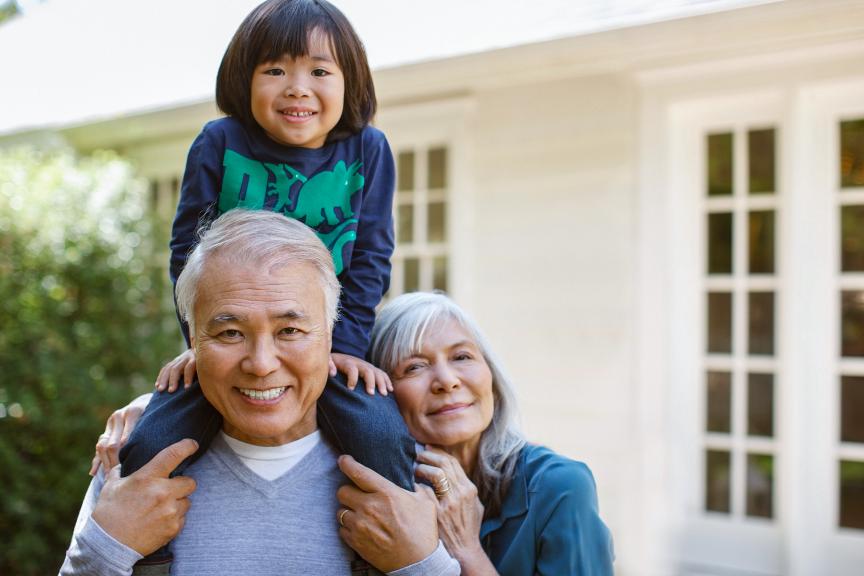 Blog
BlogEnhancing Care Strategies for ICD Patients with Atrial Fibrillation
The Findings of the MATRIX Study Could Change Clinical Practice, Says Cardiac Rhythm Expert Dr. Ignasi Anguera Camos
-
Image
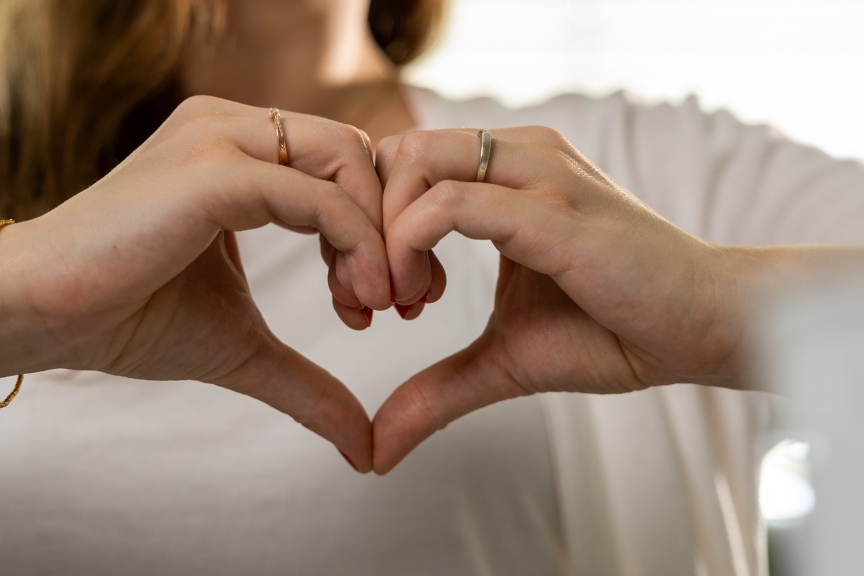 Blog
Blog60 Years of Saving Lives & Giving Back – How BIOTRONIK Offices Support Local Communities
Our colleagues from around the world show that it sometimes doesn't take much to make a difference
-
Image
 Blog
BlogSummer Reading Selections: Five Must-Read Studies for Clinical Practice and Trends
Explore the Latest Research on AI in Medicine, Atrial Fibrillation Detection, Resorbable Scaffolds, Non-Contact Charge Density Mapping, and Spinal Cord Stimulation to Enhance Clinical Practice and Stay Ahead of the Curve
-
Image
 Blog
BlogA Golden Opportunity: Looking back at BIOTRONIK’s GoldTip Ablation. How it Began and Where it’s Headed
Pioneering spirit and passion for innovation – that's what BIOTRONIK stands for. This is also shown by the company’s flagship innovations: from the first German pacemaker to the GoldTip ablation catheter, a real innovation in electrophysiology that is still the gold standard today.
-
Image
 Blog
BlogRemote Patient Monitoring With Alert Based Care Is the Future for Managing Cied Patients
A contribution by David Hayes, MD, Chief Medical Officer at BIOTRONIK Inc.
-
ImageBlog
How Much Exercise Is Enough for a Healthy Heart?
Recent Studies Reveal Optimal Levels of Physical Activity for Cardiovascular Health
-
Image
 Blog
Blog“Hats off to Your Work!”
The first patient visit to BIOTRONIK in a long while met with excitement and enthusiasm
-
Image
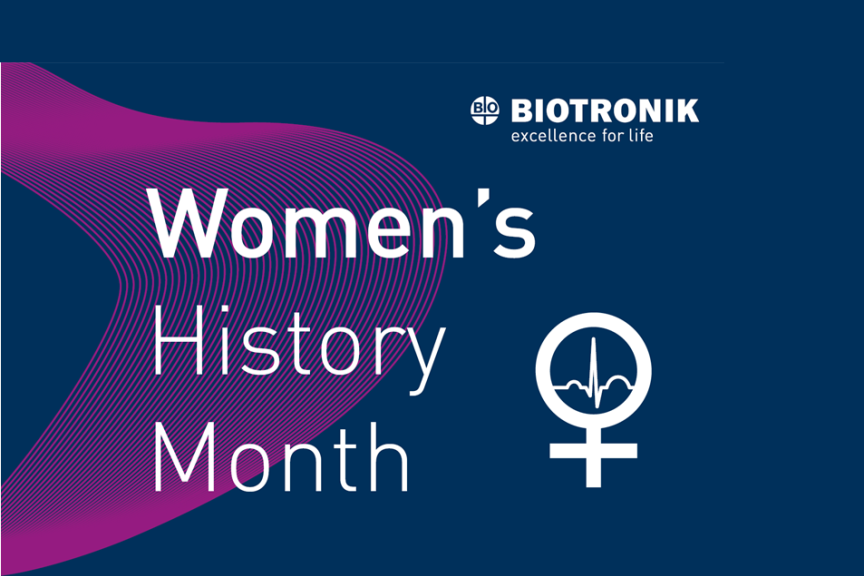 Blog
BlogWomen’s History Month: Celebrating the Women Who Helped Shape Cardiology
Women’s History Month is the perfect time to celebrate the incredible achievements of the women who have shaped the field of cardiology.
-
Image
 Blog
BlogNew German Supply Chain Act Focuses on Human Rights
Biotronik’s Chief Procurement Officer Takes a Look at the New Statutory Regulations
-
Image
 Blog
BlogMindfulness Isn’t Just a Buzzword at BIOTRONIK
With 2023 upon us, BIOTRONIK employees are no exception to the kind of motivated goal-setting we often see at this time of year. Whether it’s more sports, a more mindful approach to everyday life, or to quit smoking—it’s important to have as much support as possible. That’s why BIOTRONIK’s Health Program 2023 will work to empower employees to achieve their health-related goals. 2023’s edition places a special focus on improving mental health at work, alongside the company’s work to promote physical health.
-
Image
 Blog
BlogMyth or Fact? Your Device Security Questions Answered
While in office as US Vice-President, Dick Cheney had the remote monitoring function of his pacemaker turned off over concerns a malicious hacker could access his device. In 2012, an episode of the TV drama Homeland depicts a faraway terrorist hacking into the fictional US Vice-President’s pacemaker and assassinating him. It may have made for thrilling TV, but is successful malicious hacking of a cardiac device possible in real life?
-
Image
 Blog
BlogTop 6: Our Most Read Blogs of 2022
Whether it’s from our engaged team at BIOTRONIK, inspiring patients, or expert physicians—one thing is clear from our most read BIOTRONIK blog stories of 2022: real stories, from real people, touch hearts.
-
Image
 Blog
BlogPandemic Sees Big Jump in Remote Monitoring Use, but Reimbursement Still a Barrier
-
Image
 Blog
BlogWhat We Eat—Some Surprises About Our Food and Heart Health
2022 has been a surprising year at times when it comes to studies of what we eat and how it affects heart health. Although there have been numerous publications looking at this relationship this year—a few stood out to us, and they may have interesting implications for our diets.
-
Image
 Blog
BlogAdvancing Cardiac Patient Management Together
Digital Health brings opportunities to advance patient care but also new challenges. In addition to a marked increase in data volume in the clinical space and increased patient involvement in care, digital technology’s role in the care space has changed. This also allows enormous opportunities for early detection and preventing clinical problems, particularly for patients with an implanted cardiac device—when data and new digital technologies are optimally managed.
-
Image
 Blog
BlogThe Future of AF Management in ICD Patients
How New Strategies Move Beyond Simple AF Detection to Focus on Reducing AF Burden and Monitoring Disease Progression
-
Image
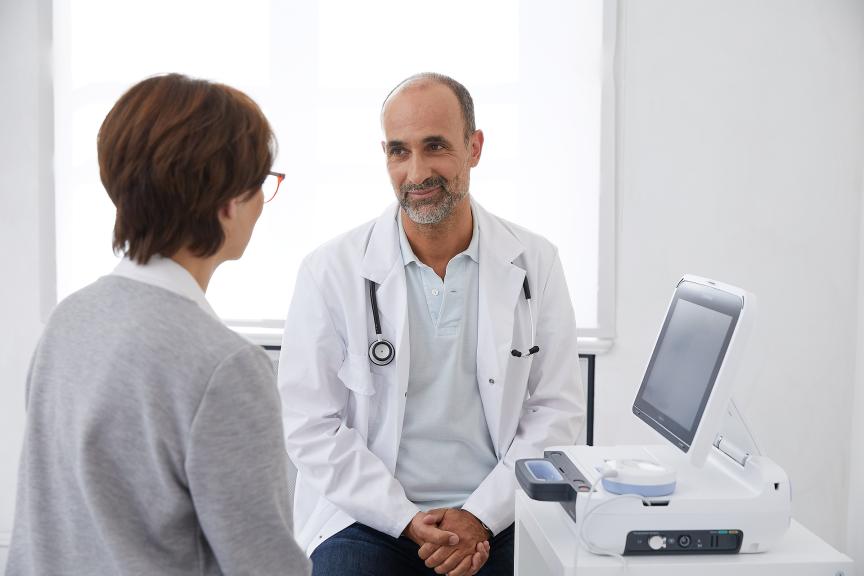 Blog
BlogFirst BIO-LIBRA Results Pave Way for More Representative Clinical Trials
After starting enrollment in 2019, Dr. Valentina Kutyifa announced the first results of the BIOTRONIK-supported BIO-LIBRA trial at the Annual Heart Rhythm Society meeting (HRS 2022).
-
Image
 Blog
Blog“Discussions With My Daughter Gave Me the Sense That Things Could Continue Normally”
BIOTRONIK Employees Share Their Experiences as Relatives of Cardiac Patients
-
Image
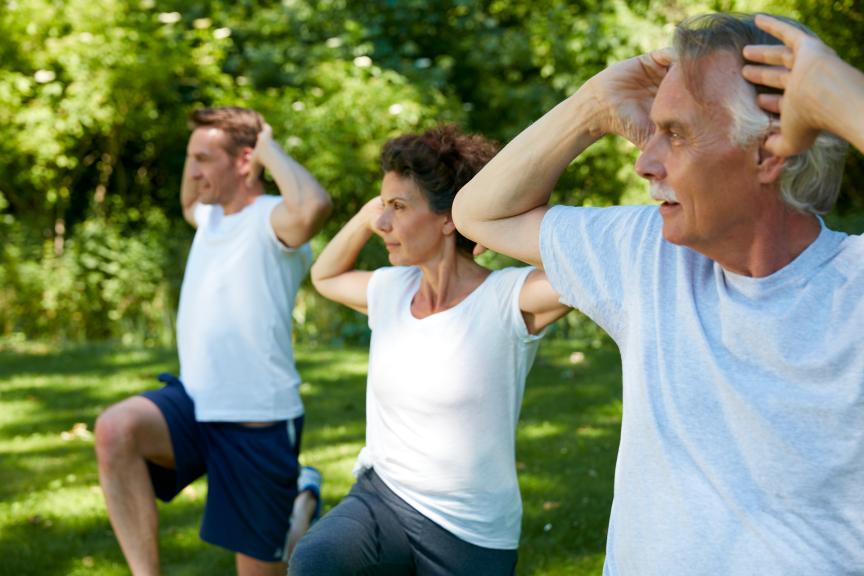 Blog
BlogSport For Pacemaker or Defibrillator Patients – How to Get Started Again?
More than 1.7 million cardiac implantable electronic devices are implanted worldwide each year. Young implant wearers in particular have many questions about whether and how their life will change after the procedure. One of the most important ones: whether and to what extent they can practice sports again. Media coverage of the Danish professional soccer player Christian Eriksen, who had an ICD (implantable cardioverter-defibrillator) implanted after collapsing during an international match, has further increased interest in the interaction between cardiovascular diseases and sport.
-
Image
 Blog
BlogTravelling With a Cardiac Implant is “Easier Than Expected”
Rolf Opuchlich has been with the BIOTRONIK Quality Team since 1997. In 2020, he received his own device. Despite knowing just about everything there is to know about the defibrillator he now wears, on his first vacation after getting his implant he was still a bit restless. “I was fairly nervous that first time,” says Rolf looking back at his first flight with his ICD after implantation. “Even though I know our devices well and had everything I needed with me.”
-
Image
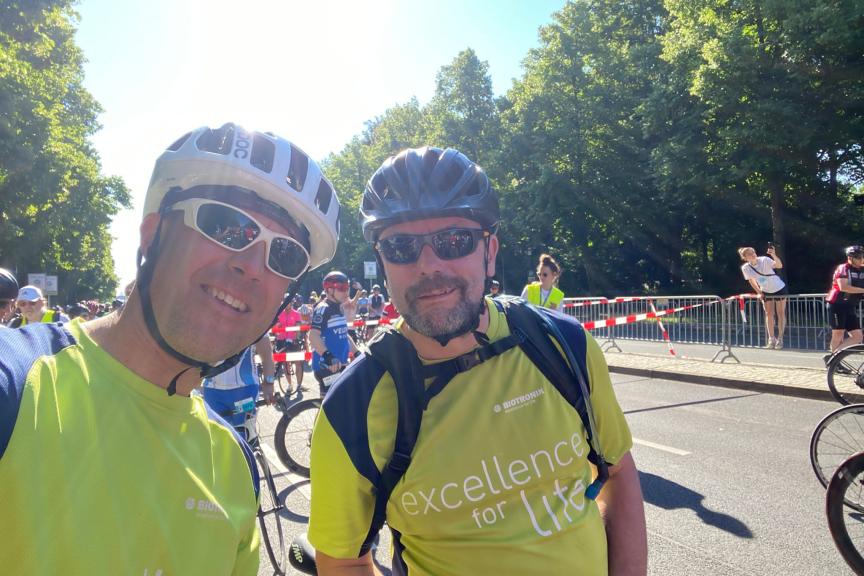 Blog
BlogTeam Spirit Through Activity: BIOTRONIK Cyclists Hit Major Road Race After Three-Year Hiatus
Continuing a company tradition that started a decade ago, BIOTRONIK employees at the company’s headquarters mounted their bicycles in early July to race through Berlin as a team during VeloCity Berlin—an event that sees teams come together for either a 60km race or a 90km race through the German capital.
-
Image
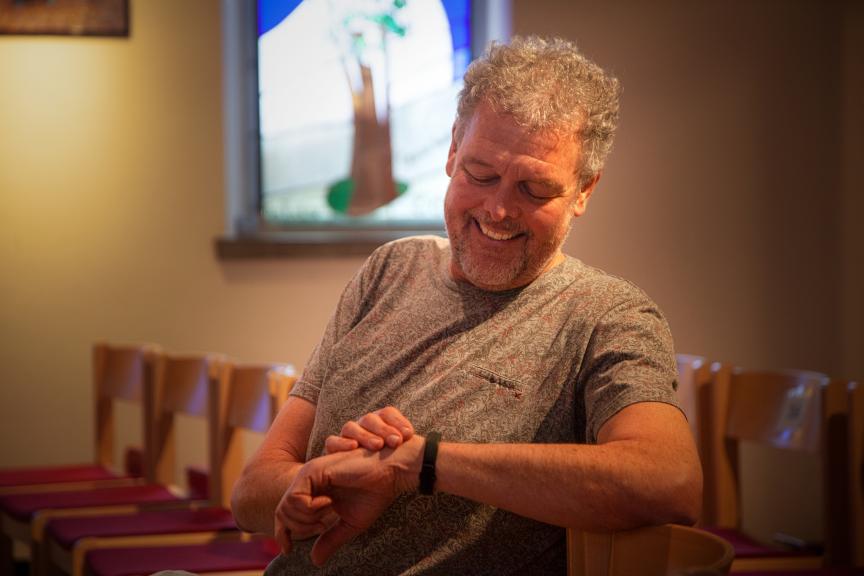 Blog
Blog“I Now Know What Really Matters in Life”
Around 49 million people in the EU suffer from cardiovascular diseases. Here, Coronary Artery Disease (CAD) accounts for the major share of the diseases. In this context, narrowing of vessels by atherosclerotic processes is closely linked to an unhealthy lifestyle. This was also the case for the North Rhine-Westphalian deacon Rainer Beerhenke. After successful stent placement and a bypass surgery in 2021, the 58-year-old is again living life to the full and is one of the first patients to take part in the EU-funded TIMELY project, which aims to improve the range of therapies for CAD patients.
-
Image
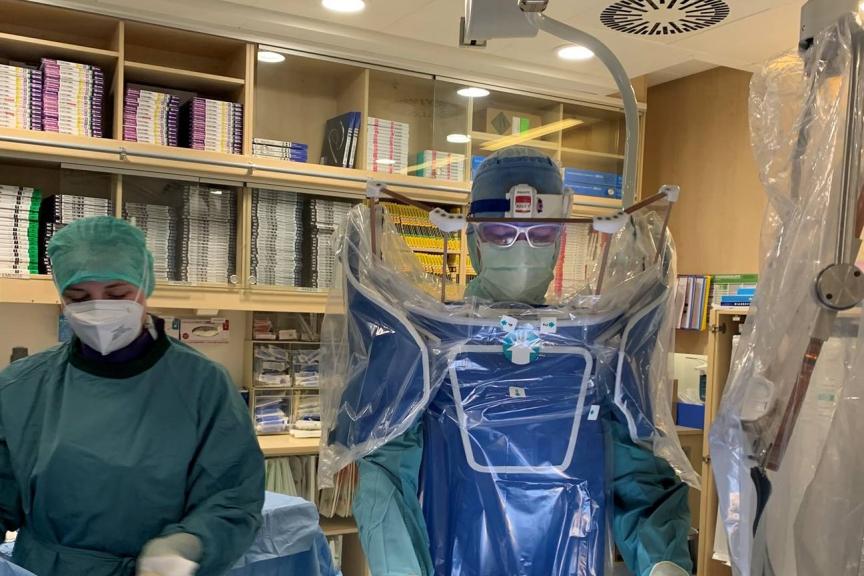 Blog
BlogRadiation and Occupational Safety in Interventional Cardiology
Cardiac catheterization labs can be complicated workplaces when it comes to occupational safety.
-
Image
 Blog
BlogThe Effects of Air Pollution on Heart Health
Higher quality of life, more biodiversity and a better climate – the advantages of green cities seem obvious. Green living – including breathing clean air – plays an especially crucial role for our heart health and overall well-being. On the occasion of World Environment Day, we looked at what effect air pollution has on heart health and what each of us can do to make our cities more livable.
-
Image
 Blog
BlogThe Role of Cardiac Nurses in the Digital Health Era
Why Innovative Treatment Solutions Should Be Designed With the Nurse in Mind
-
Image
 Blog
BlogHow to Select ICDs and Foster Early Detection of Atrial Fibrillation
The incidence of atrial fibrillation (AF) in patients with implantable cardioverter-defibrillators (ICDs) is approximately 21 percent (mean annual probability) 1 and is often undetected – and therefore untreated.
-
Image
 Blog
BlogStaying Active and Sticking to Goals With a Heart Implant
Cardiac pacemaker implantations are now routine interventions. Around three million people worldwide have a pacemaker, and every year 600,000 more receive an implant. Nevertheless, the diagnosis and procedure can look challenging for patients at first— especially patients who are athletes or enjoy being active.
-
Image
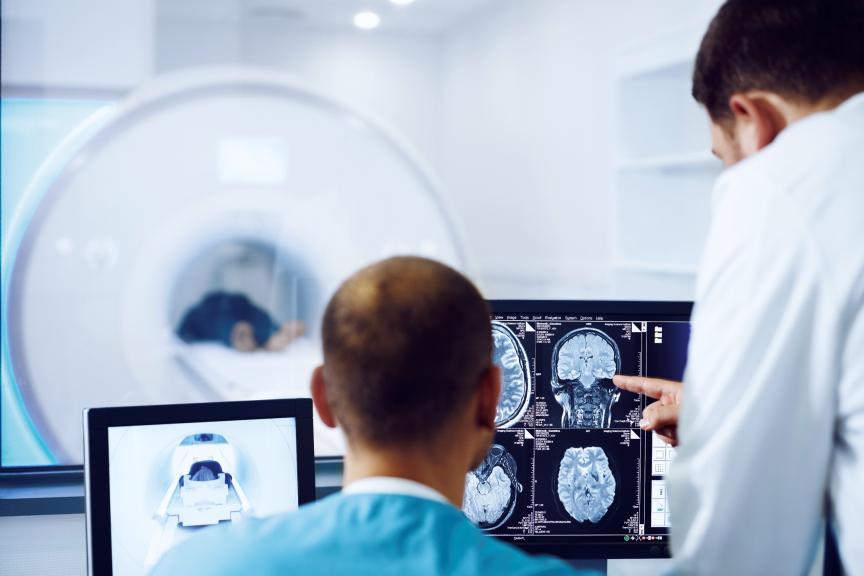 Blog
BlogSupporting Cardiac Device Patients in Getting MRI Scans—How Should Physicians Facilitate?
More than ten years after BIOTRONIK received approval for its first ProMRI pacemaker, allowing the first cardiac device patients access to MRI scans, we still get many questions from patients about what documents they should bring to a scanning appointment—to ensure their radiologist doesn’t turn them away.
-
Image
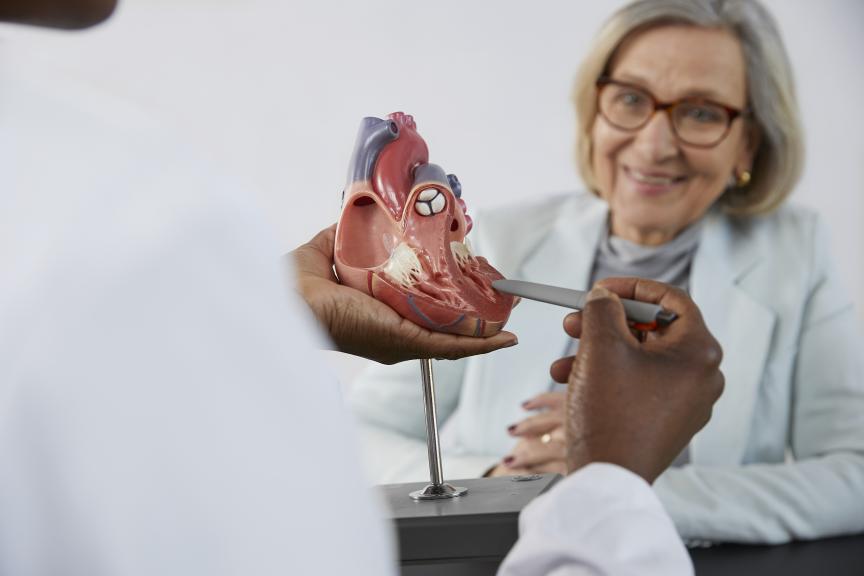 Blog
BlogWhy We Support More Representative Trials in Cardiology
Cardiovascular research has achieved a lot in the last few decades—but even today the cardiology community is discussing whether the field needs gender-specific guidelines for treating cardiovascular diseases. One of the biggest obstacles is one of the most common problems in scientific research—a simple lack of data.
-
Image
 Blog
BlogHow Strong Data Protection Can Help Drive Digital Health Advancements
It’s hard to think of information that feels more personal than data about our own health. Yet we’re generating and monitoring more health data now than ever before. Whether it’s specific technology designed to help manage certain medical conditions—such as BIOTRONIK’s Patient App or remote care with Home Monitoring—or the plethora of more general, consumer-grade wearables and health apps, there are more and more digital options to help manage patient health.
-
Image
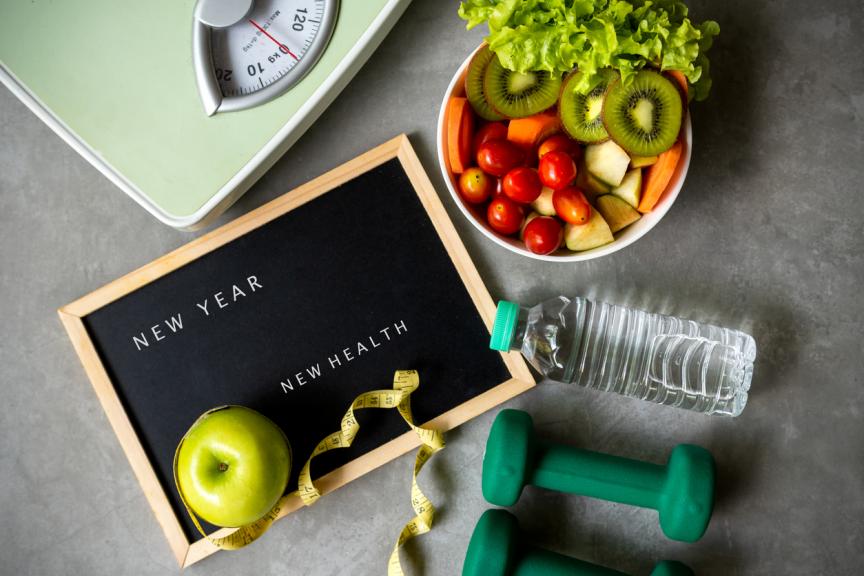 Blog
BlogResolutions Worth Keeping: Living Heart-Healthy in 2022
An American survey last year found that health-related goals topped the priority list of New Year’s resolutions for 2021. Around half of those surveyed wanted to exercise more or lose weight, while about 40 percent wanted to improve their diets and 10 percent wanted to quit smoking. Of those people who make resolutions, many say they do, in fact, keep them. Around half of respondents in one such survey said they kept at least some of their 2020 resolutions. About 35 percent said they met all of their goals and just 16 percent say they didn’t keep any of their resolutions.
-
Image
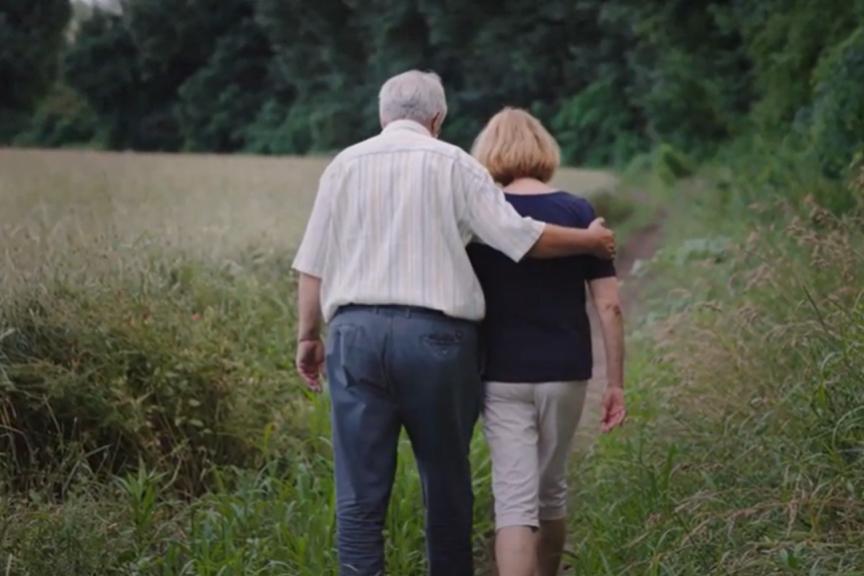 Blog
Blog“I did not let it throw me off course”
How a CLS Pacemaker Helps Cabaret Artist Wolfgang Koch Live Life to the Fullest
-
Image
 Blog
BlogFive Things All Cardiac Device Patients Should Know
Read the Most Common Patient Questions We Received in 2021 and Answers From Our Experts
-
Image
 Blog
BlogFour Ways to Lower Your Atrial Fibrillation Risk
Atrial Fibrillation Is the Most Common Type of Heart Arrhythmia and Affects About 30 Million People Worldwide.
-
Image
 Blog
BlogFuture of Resorbable Scaffolds Looks Rosier
As More Data Comes In, There’s Plenty of Reasons to Be Optimistic About Scaffolds
-
Image
 Blog
BlogWhat Role Can ICMs Play in Stroke Prevention?
As ICM Use Becomes More Common, How Can Clinics Manage the Workloads That Come With the Longer-Term Diagnostic Windows ICMs Offer?
-
Image
 Blog
BlogWomen at BIOTRONIK
Four of Our Most Inspiring Leaders Talk About the Most Important Lessons From Their Careers
